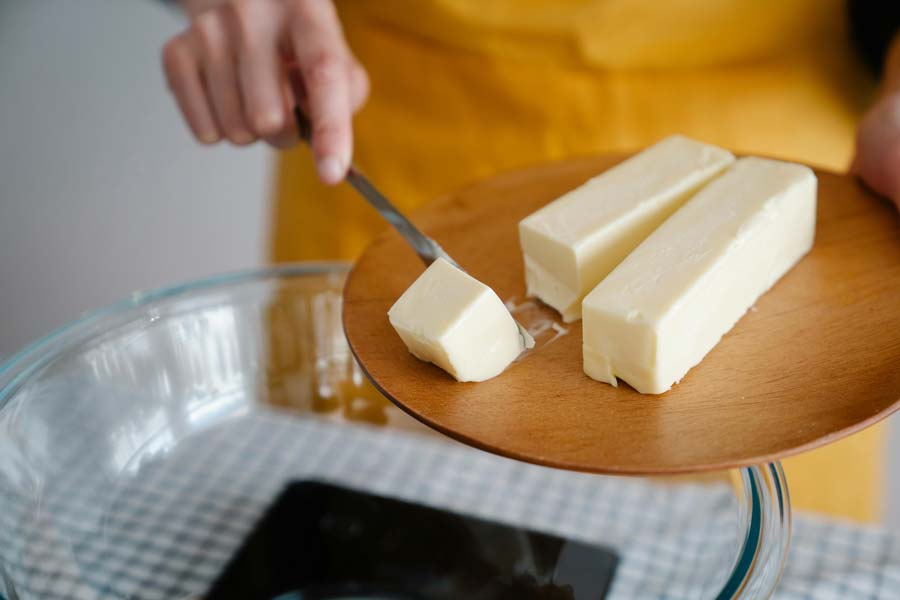Last week, we looked at stress and balance – but one hidden source of stress is right there on your plate. Navigating today’s food landscape has become a daily challenge. Ultra-processed products line the shelves, and the latest “innovation” takes things to a new level: butter made out of thin air.
Yes, you read that right.
Last week, in passing, I mentioned this strange new “innovation” – butter made out of thin air. The idea was so astounding (and concerning) that I felt it deserved a closer look this week, and many of you felt the same. Because while it might sound like science fiction, this product – dubbed carbon butter – is very real.
A US-based company, backed by Bill Gates, has found a way to turn carbon dioxide and hydrogen into fat molecules, churn them with a few additives, and market the result as a “planet-saving” food. Big media outlets are hailing it as the future of sustainable food.
But here’s the problem. Real butter from grass-fed cows isn’t just fat – it’s a source of fat-soluble vitamins A, D, E, and K2, all critical for brain, bone, and hormone health. Will lab-engineered fats ever match that? Or are we heading down the same road that gave us margarine, seed oils, and soy substitutes – once sold as healthy, later exposed as harmful?
What’s Really at Stake
The body is not a microscope. Just because molecules look identical on paper doesn’t mean they behave the same way inside a living system. Nutrients come in complex packages, with enzymes, cofactors, and synergistic compounds that we don’t yet fully understand. Strip food down to isolated molecules or build it up in a lab, and you risk losing the very complexity that makes it nourishing.
And instead of fixing our broken food system – by supporting farmers, rebuilding soil health, and rethinking mass industrial farming – big money is doubling down on artificial shortcuts. It’s a pattern we’ve seen before, and it rarely ends well.
The truth is, we don’t need “butter from carbon” to save the planet. We need real food, raised with care, and farming practices that restore soil and capture carbon naturally.
Protecting Yourself in a Toxic Food Era
So how can you protect yourself and your family when the food environment feels stacked against you?
- Choose organic, whole, unprocessed foods whenever possible – Prioritise quality over quantity.
- Support local and regenerative farms – This is where true sustainability lies.
- Favour natural fats such as organic butter, ghee, coconut oil, and olive oil – These provide essential fatty acids and vitamins in their natural form.
- Support digestion and detox pathways – Even with the best choices, we can’t fully avoid hidden toxins. That’s why daily support is vital.
Our recommendations:
- Digestive Enzymes – These help break down modern foods more effectively, easing the burden on your gut and ensuring you absorb the nutrients you do eat.
- Chlorella & Spirulina – These supergreens are rich in chlorophyll, protein, and minerals, and help bind and remove heavy metals and other toxins from the body.
This Week’s Takeaway
Innovation isn’t always progress. Before celebrating butter made from thin air, we should pause and ask: Do we really want to swap food grown from the earth for food engineered in a lab?
Real nourishment doesn’t need reinventing. The closer we stay to the foods nature provides, the better our bodies – and the planet – will thrive.




